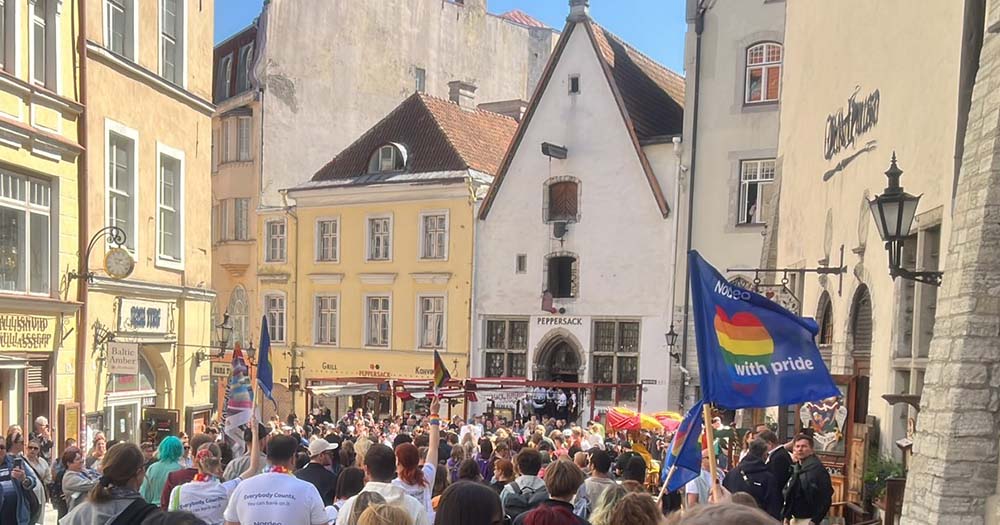On Tuesday, June 20, the Estonian parliament voted to legalise same-sex marriage, making Estonia the first central European post-Soviet country to do so.
A total of 55 members of parliament voted in favour, with 34 voting against. With this vote, the legal definition of marriage, which previously entailed a union between a “man and woman”, was updated to “two natural persons” of legal age.
Estonia voted to support same-sex civil unions in 2014, but this partnership did not offer the adoption rights or parental recognitions that come with marriage. With this new legislation, Estonia becomes the 35th country in the world to allow same-sex marriage, the first Baltic country, and the second Eastern European country following Slovenia in 2022.
Earlier in April, Prime Minister Kaja Kallas promised to legalise same-sex marriage “as fast as possible”. After today’s vote, Kallas shared: “I’m proud of my country. We’re building a society where everyone’s rights are respected and people can love freely.”
It’s official: #Estonia has legalised marriage equality. We join other Nordic nations with this historic decision.
I’m proud of my country. We’re building a society where everyone’s rights are respected and people can love freely.
The decision will enter into force from 2024. pic.twitter.com/tQJdO70eEo
— Kaja Kallas (@kajakallas) June 20, 2023
Estonia is located in one of the most conservative regions of Europe, but public attitudes about LGBTQ+ rights have improved dramatically in the past decade. The Estonian Human Rights Centre shows that 53% of Estonian people now support marriage equality, a significant increase compared to only 38% in 2019.
Further, in a survey conducted in 2023, 67% of parents said their attitude toward their child would not worsen if they were gay or lesbian, compared to only 40% in 2012.
Congratulations to Estonia ?? on becoming the first ex-soviet state to legalise same-sex marriage. Your journey is an inspiration to us all in difficult times for LGBTQ+ people. Can’t wait to see those first ceremonies! ?️? ?????? pic.twitter.com/zRH8kpHiZs
— Scott Cuthbertson (@ScotCuthbertson) June 20, 2023
Lauri Hussar, Estonia’s Parliament President, explained how the war in Ukraine has contributed to this change in public perception: “[The war] united us in helping Ukraine and also brought us to the roots of liberal democracy and therefore, I think it brought us to think about what is important for us as a society.”
Hussar added that, while “the Church and the conservatives are against it,” the majority of Estonians now support marriage equality.
The law will officially come into effect in January 2024.
© 2023 GCN (Gay Community News). All rights reserved.
Support GCN
GCN is a free, vital resource for Ireland’s LGBTQ+ community since 1988.
GCN is a trading name of National LGBT Federation CLG, a registered charity - Charity Number: 20034580.
GCN relies on the generous support of the community and allies to sustain the crucial work that we do. Producing GCN is costly, and, in an industry which has been hugely impacted by rising costs, we need your support to help sustain and grow this vital resource.
Supporting GCN for as little as €1.99 per month will help us continue our work as Ireland’s free, independent LGBTQ+ media.
